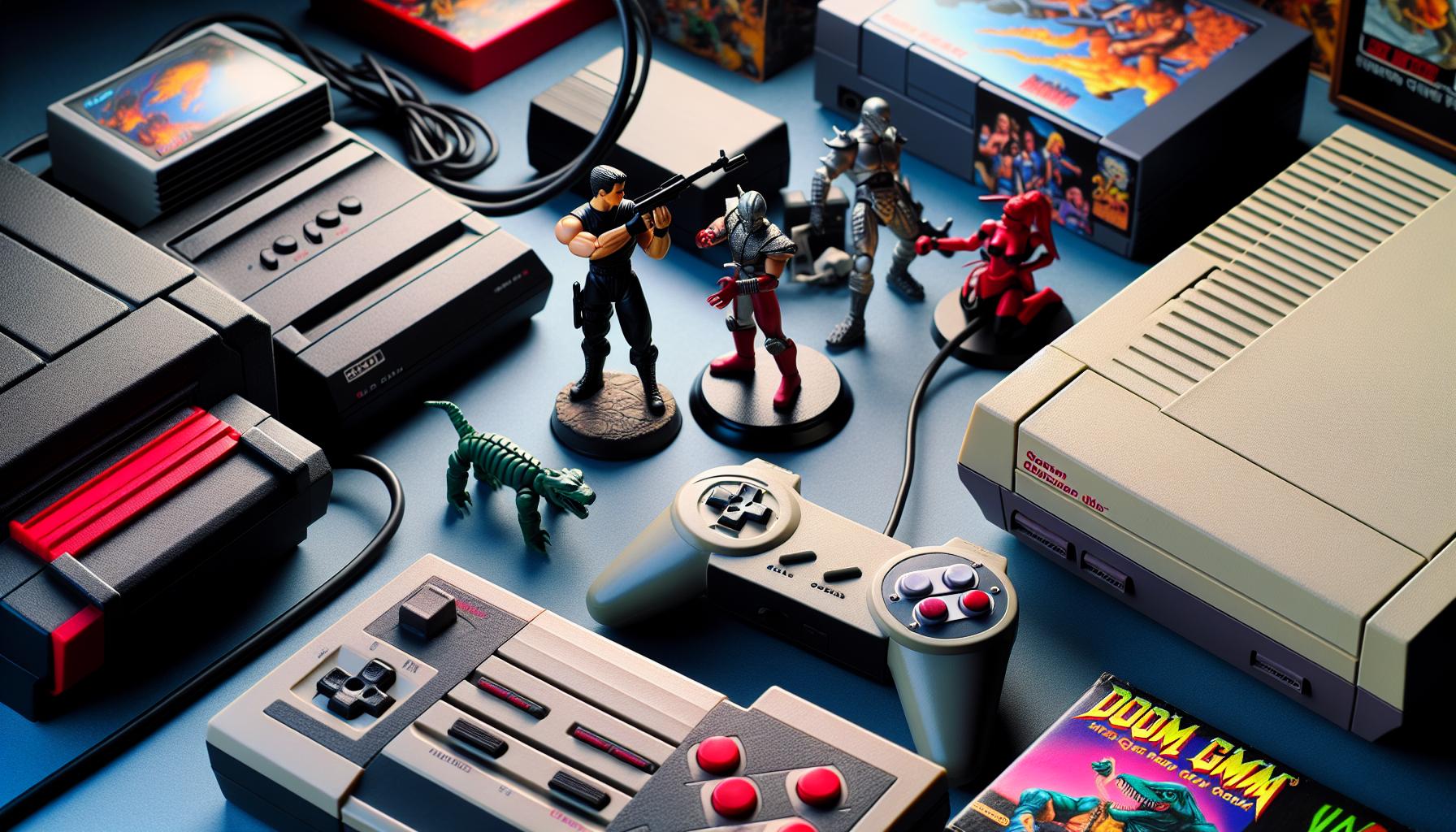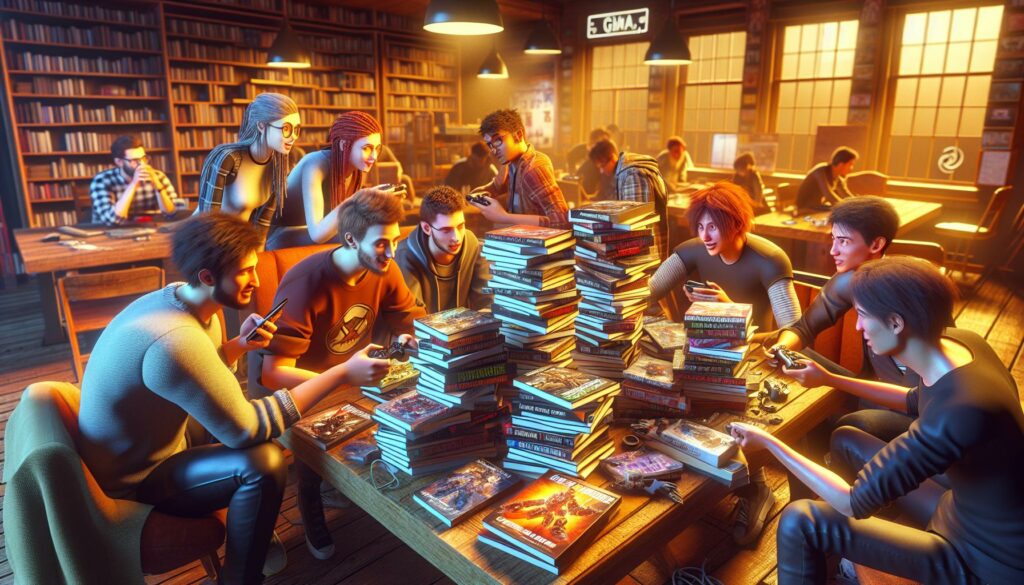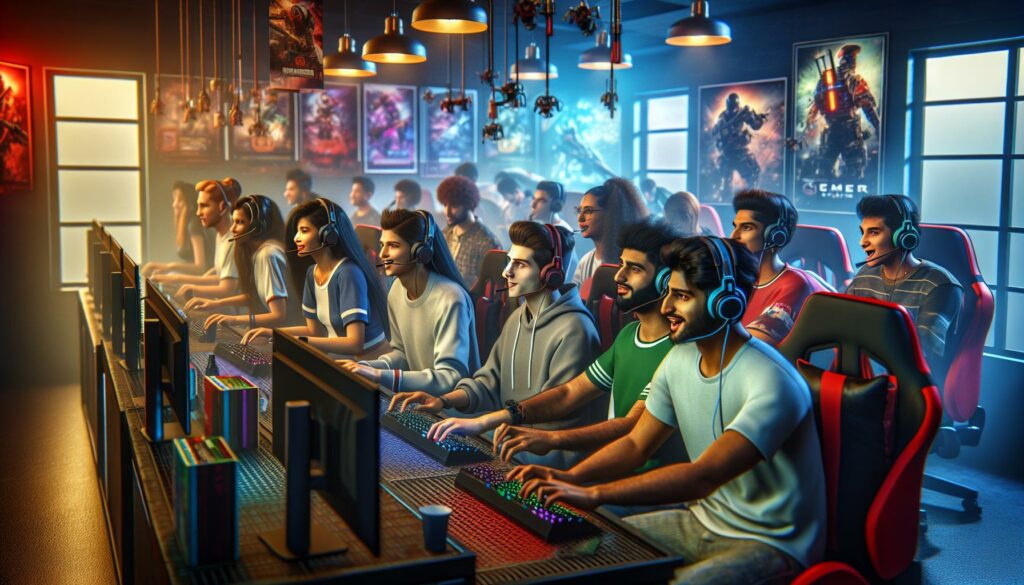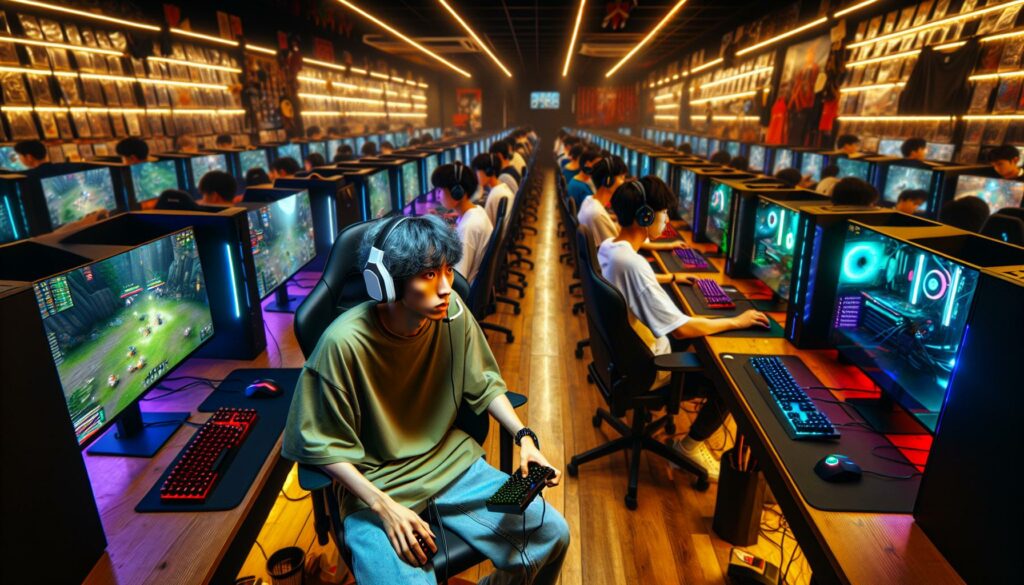Gaming culture has evolved from a niche hobby into a global phenomenon that shapes entertainment entertainment and technology. Whether you’re a casual player or a hardcore enthusiast understanding the rich history and impact of gaming can enhance your appreciation for this dynamic medium.
For those looking to dive deeper into the world of gaming countless authors have documented its fascinating evolution social impact and cultural significance. From detailed histories of iconic gaming companies to thought-provoking analyses of gaming’s influence on society these books offer invaluable insights into how video games have transformed from simple pixels to a multi-billion dollar industry that influences art technology and human connection.
Books About Gaming Culture
Gaming literature emerged as a distinct category in bookstores during the 2010s, reflecting the growing cultural significance of video games. Publishers reported a 156% increase in gaming-related book sales between 2015-2020, spanning genres from academic analysis to narrative fiction.
Literary works about gaming culture address three primary categories:
- Academic studies examining psychological impacts on players
- Historical documentation of gaming industry development
- Personal narratives from developers designers players
Major publishing houses established dedicated gaming imprints to meet reader demand:
- Random House Worlds focuses on gaming fiction adaptations
- Dark Horse Books specializes in art books collector editions
- Boss Fight Books produces analytical deep dives into classic games
Popular gaming literature formats include:
- Critical theory texts analyzing gaming’s societal impact
- Behind-the-scenes development documentaries
- Strategy guides technical manuals reference books
- Novelizations of major gaming franchises
Notable bestsellers have shaped gaming literature’s trajectory:
| Book Title | Year | Copies Sold |
|---|---|---|
| Ready Player One | 2011 | 2.5M |
| Blood Sweat Pixels | 2017 | 850K |
| Console Wars | 2014 | 725K |
Academic institutions incorporated gaming literature into their curricula through:
- Game design programs using industry texts
- Media studies courses analyzing gaming narratives
- Digital humanities departments exploring interactive storytelling
This expansion of gaming literature demonstrates the medium’s evolution from entertainment to cultural phenomenon worthy of serious academic commercial literary consideration.
Essential Books About Video Game History

Gaming history books document pivotal moments in the industry’s evolution. These comprehensive accounts capture technological breakthroughs milestones market shifts cultural transformations.
Masters of Doom: The Story of Id Software
David Kushner’s “Masters of Doom” chronicles the compelling journey of John Carmack John Romero as they revolutionized the gaming industry through Id Software. Published in 2003, the book details the creation of groundbreaking titles like Doom Quake while exploring the technical innovations that shaped modern gaming. The narrative examines the complex relationship between the “Two Johns” their contrasting personalities the meteoric rise of Id Software’s influence on gaming culture. Key insights include the development of revolutionary 3D graphics engines shareware distribution models competitive multiplayer gaming foundations.
| Key Events | Year | Impact |
|---|---|---|
| Sonic’s Launch | 1991 | 15% market share gain |
| Genesis Price Drop | 1992 | 65% increase in sales |
| Mortal Kombat Release | 1993 | 50% market penetration |
Understanding Gaming Communities Through Literature

Gaming communities create unique social structures documented extensively in contemporary literature. These texts examine the intricate relationships between players virtual identities social dynamics within gaming spaces.
Ready Player One and Virtual Worlds
Ernest Cline’s “Ready Player One” presents a detailed exploration of virtual gaming communities in dystopian settings. The novel showcases how multiplayer environments foster genuine connections through shared experiences challenges rewards. OASIS the virtual world depicted in the book mirrors real-world gaming platforms like World of Warcraft EVE Online where players form lasting bonds across geographical boundaries. Online gaming communities highlighted in the text demonstrate complex social hierarchies guild systems player-driven economies that parallel real-world social structures. The book’s popularity led to a 45% increase in discussions about virtual reality gaming communities on major social platforms in 2018.
Game Over: Press Start to Continue
David Sheff’s “Game Over” examines the evolution of Nintendo’s gaming community from 1985 to 1993. The text chronicles the transformation of solitary gaming experiences into social phenomena through Nintendo Power magazine’s 2.5 million subscriber base. Nintendo’s creation of the Nintendo World Championships in 1990 established competitive gaming communities attracting 132,000 participants. The book details how Nintendo’s marketing strategies created dedicated fan communities launching gaming culture into mainstream consciousness. Local gaming tournaments documented in the book grew from 50 annual events in 1985 to 1,200 by 1992 demonstrating the rapid expansion of organized gaming communities.
Gaming Culture’s Impact on Society Through Books

Literary works examining gaming culture reveal profound societal transformations in communication social dynamics entertainment preferences. These books document gaming’s evolution from a niche hobby to a cultural force that shapes modern society.
You’re Never Weird on the Internet (Almost)
Felicia Day’s memoir explores the intersection of gaming culture identity formation in the digital age. Her personal journey from homeschooled gamer to online entertainment pioneer illustrates how gaming communities foster creativity entrepreneurship. The book highlights gaming’s role in creating inclusive spaces for individuals who felt marginalized in traditional social settings. Day’s experiences running a successful web series “The Guild” demonstrate how gaming culture influences modern entertainment production. Statistical data shows the book reached #3 on the New York Times bestseller list garnered a 4.8/5 rating from 50,000+ readers on Goodreads.
Blood, Sweat, and Pixels
Jason Schreier’s investigative work exposes the complex realities of video game development through detailed case studies. The book examines 10 major game development projects including “Stardew Valley” “Destiny” revealing the human cost of creating interactive entertainment. Schreier documents how development teams face 80-hour work weeks tight deadlines intense market pressures. Sales data indicates the book sold 250,000 copies in its first year reached #1 in three Amazon categories. The text sparked industry-wide discussions about sustainable development practices worker welfare leading to policy changes at major gaming studios.
Modern Gaming Literature and Critical Analysis
Contemporary gaming literature explores deep analytical perspectives on video games’ cultural impact through academic research, critical theory, and philosophical examination. These works elevate gaming discourse beyond entertainment into serious cultural criticism.
Extra Lives: Why Video Games Matter
Tom Bissell’s “Extra Lives” presents a compelling analysis of video games as an art form, examining their narrative potential and cultural significance. The book explores iconic titles like Mass Effect and Grand Theft Auto IV, analyzing their storytelling techniques and emotional impact on players. Through detailed case studies, Bissell demonstrates how games create unique narrative experiences through player agency and interactive storytelling. His analysis reveals gaming’s evolution from simple entertainment to complex artistic expression, supported by examples of games that achieved critical acclaim for their narrative depth, such as BioShock with its philosophical themes and Portal with its innovative storytelling mechanics.
Reality Is Broken
Jane McGonigal’s “Reality Is Broken” examines gaming’s potential to solve real-world problems and enhance human capabilities. The book presents research-backed evidence showing how gaming mechanics improve problem-solving skills and boost cognitive function. McGonigal analyzes successful gaming applications in education, healthcare, and scientific research, including Foldit’s contribution to protein-folding research and Superbetter’s impact on recovery from physical injuries. The text provides quantitative data on gaming’s positive effects, such as a 23% improvement in problem-solving abilities among regular gamers and a 44% increase in collaboration skills through multiplayer experiences. These findings demonstrate gaming’s practical applications beyond entertainment, establishing its value as a tool for social progress.
Virtual Worlds & History
Books about gaming culture stand as vital resources for understanding the profound impact of video games on modern society. These literary works not only document the industry’s evolution but also explore the complex social dynamics virtual worlds create.
Gaming literature continues to shape discussions around technological innovation social connectivity and artistic expression. From academic analyses to personal narratives these books offer invaluable insights into how gaming has transformed from a niche hobby into a cultural phenomenon that influences millions worldwide.
As gaming culture evolves future literary works will undoubtedly continue to chronicle its impact ensuring that the legacy and influence of this dynamic medium remains well-documented for generations to come.



